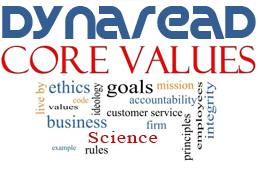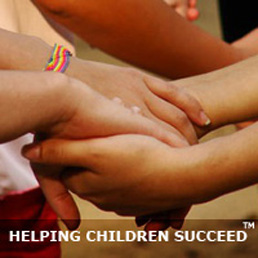It is not uncommon for children with dyslexia to also have difficulties with mathematics. However, dyslexia and mathematics disorders, also known as dyscalculia, do not always come together and they might show separately with different underlying deficits or origins. Both disorders have a neurobiological origin and are related with a specific difficulty in the learning and mastering, or acquisition, of an academic skill (reading and mathematics respectively). Thus the impact in the daily lives of those who have them is twofold (ref. 1).
Dyslexia is characterized by difficulties in learning to read whereas dyscalculia is characterized by difficulties in acquiring mathematical concepts (e.g., time tables, counting) and in performing arithmetic calculations (ref. 2, 3). Children who have both learning disorders show phonological processing deficits (as in the case where a child omits a sound or sounds in a spoken word) related with their reading struggles, but also a specific difficulty in processing number-related knowledge which is linked with their arithmetic problems. These specific difficulties do not differ from children with the pure disorders, i.e. from children that only struggle with dyslexia, or only with dyscalculia (ref. 1).
Are there common failures to both disorders? Research agrees that failures in access to knowledge and in verbal working memory are common to both disorders (ref. 1, 4). This will manifest in difficulties recalling information while using it, in recollecting math facts or specific words, in learning sequences (for example the alphabet, counting, and time tables), remembering the steps involved in a problem's solution, and in comprehending texts. Moreover, children with learning disabilities involving both reading and mathematics tend to have more severe problems across other areas such as language, working memory, reading, and math (ref. 5).
Can dyslexia alone affect your child's mathematics performance? Reading is involved in all academic areas so even if a child has only been diagnosed with a reading disability, his mathematics performance can be affected (ref. 6). Mathematics involves recalling very specific and complex words (e.g., multiply, fraction, denominator, quotient, calculate), concepts (e.g., square root, rational numbers), and facts such as time tables. When a child lacks the appropriate reading skills, they might not be able to accurately store these words or concepts in their vocabulary. Mathematical concepts are built on one another, thus getting partial representations of these words with inaccurate spelling, pronunciation or meanings attached to them will affect the mastery of future concepts.
When math language appears in an exercise sheet, the child might not recognize them and will not do what they are being asked to do. For example, one day a child might be asked to take away 12 from 50, the next one to do 50 minus 12, and the following day to subtract 12 from 50. All of them refer to the same process, but the child might be familiar only with the words less than so they will not know what to do.
The effect of dyslexia on math performance is also evident in word problems. Children must comprehend a sentence or a paragraph to be able to solve a problem and even if they might know how to do the calculations and the correct procedures to solve the problem, they cannot comprehend what they are being asked to do. Math problems often lack context and use complex grammar and words which can be challenging for a person with dyslexia.
Teachers and parents must be aware of the possible association between dyslexia and mathematics disorders, as well as the possible effects dyslexia can have on mathematics performance in general. Explicitly teach specific mathematics vocabulary and sentence structure. Doing this will help the child understand and accurately comprehend the texts in math problems, and will support the child towards their success in math.
Keywords: Dyscalculia, phonological processing, dyslexia and mathematics disorders, math
1. Landerl, K, B Fussenegger, K Moll, and E Willburger. "Dyslexia and Dyscalculia; Two Learning Disorders With Different Cognitive Profiles." Journal of Experimental Child Psychology. 103 (2009): 309-24. Print.
2. Lerner, J, and F Kline. Learning Disabilities and Related Disorders: Characteristics and Teaching Strategies. 10th. New York: Houghton Mifflin Company, 2006. Print.
3. Snowling, M. "The Science of Dyslexia: A Review of Contemporary Approaches." The Study of Dyslexia. Comp. Turner, Ed M and Comp. Rack,Ed J. New York: Kluwer Academic Publishers, 2004. 77-90. Print.
4. Siegel, L.S., and E.B. Ryan. "The Development of Working Memory In Normally Achieving and Subtypes of Learning Disabled Children." Child Development. 60. (1989): 973-80. Print.
5. Fletcher, J.M., G Reid Lyon, L.S. Fuchs, and M.A Barnes. Learning Disabilities: From Identification to Intervention. New York: Guilford Press, 2007. Print.
6. Rothman, R. W. and C. Lavin."The Impact of Dyslexia on Mathematics." n.pag. Web. 15 March 2012.

![]() Our Dynaread team members are required to hold themselves accountable for serving our clients in adherence with our core values...
Our Dynaread team members are required to hold themselves accountable for serving our clients in adherence with our core values...
Contribute with scientific and overall integrity.
Retain the focus on the needs of each individual child.

Dynaread has been developed in the trenches of actual remediation, with our feet firmly planted on the ground. Scientific research is essential (and we consistently use it), but we also understand the realities at home and in school. Not all homes have two parents, not all Dad's or Mom's are always home, there is oftentimes no money, schools lack staff or funding. We listen, we observe, we discuss, and we build the best solutions we can for older (ages 7+) struggling readers.
